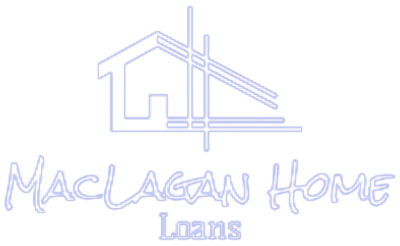Buy A Home In Illinois With Confidence
Smart Mortgage Solutions Without The Hassle
Buying a home should be exciting and not overwhelming. At MacLagan Home Loans, we take the stress out of financing by offering personalized loan options that fit your goals and budget.
Our free pre-approval process is fast, simple, and designed to help you understand your options from the start. Whether you’re buying your first home or upgrading, we’re here to guide you every step of the way.
Here’s how our home loan process works:
- Schedule a free mortgage consultation
- Receive options based on your unique criteria and scenario
- Submit your documents
- Compare mortgage types, interest rates, and terms
- Now your pre-approved and ready to start shopping for your new home.


What It Takes to Get Pre-Approved
Getting pre-approved is your first big step toward buying a home—and we make it simple. Our goal is to understand your full financial picture so we can match you with the best loan program for your needs.
Here’s what we typically review during the pre-approval process:
- Income & Employment History – Are your earnings consistent and verifiable?
- Credit Profile – What’s your current credit score, and do you have a history of managing debt?
- Assets & Savings – How much do you have for your down payment and reserves?
- Debt-to-Income Ratio (DTI) – How much of your monthly income goes toward existing debt?
Depending on your situation, we’ll walk you through loan options that may be a great fit, including:
- Conventional Loans – Ideal for borrowers with good credit and stable income
- FHA Loans – Great for first-time buyers or lower down payments
- VA Loans – Exclusive benefits for eligible Veterans and active-duty service members
- Jumbo Loans – For higher-priced homes that exceed conforming limits
Not sure which one’s right for you? That’s exactly what we’re here for. Every borrower is different—and that’s why your mortgage solution should be too.
Get approved Quick & Easy!
Loans we offer
Your Home Loan Could Be Fully Funded 21 Days From Now Without Any Hassles!
Conventional Loans
A popular mortgage option for borrower’s with strong credit and stable income. Down payments as low as 3% and with competitive and adjustable rate options.
Read moreFHA Loans
A great mortgage option for first-time home buyers or those with limited funds. They have flexible credit requirements and offer down payments as low as 3.5%.
Read moreVA Loans
The best loan option for eligible military veterans and active duty service members. 100% financing and no mortgage insurance.
Read moreJumbo Loans
A great mortgage option for borrower’s looking to finance a home that exceeds conventional loan limits. Down payments as low as 10%.
Read moreDSCR Loans
Rental property loans that require no income or employment verification. The best loan for real estate investors and landlords
Read moreFix & Flip Loans
The perfect loan option for real estate investors who are looking to finance a property that needs renovation. Finance 100% of the renovation with down payments as low as 10% of the purchase price.
Read moreFAQ
What is the easiest type of mortgage to get approved for?
FHA loans are generally considered the easiest mortgages to qualify for.
They require just a 580 credit score with a 3.5% down payment, making them accessible to borrowers with less-than-perfect credit histories (such as credit histories with collections and charge-offs) and limited savings. They have higher debt to income ratios than conventional loans.
What is the lowest credit score to qualify for a home loan?
FHA loans have the lowest credit score needed to qualify for a home loan. They have a minimum 580 credit score with a 3.5% down payment, but scores between a 500-579 require a 10% down payment.
Conventional Loans have a 620 minimum credit score.
VA Loans have a 580 minimum credit score.
USDA Loans have a 580 minimum credit score.
Jumbo Loans have a 700 minimum credit score
DSCR Loans have a 620 minimum credit score
What are the three main items to qualify for a mortgage?
The 3 main items needed to qualify for a mortgage are income, assets, and credit.
Income: What’s your gross monthly income before taxes..
Assets: How much you have saved up determines what your max purchase price will since this goes towards your down payment and closing costs. Also the mortgage months of mortgage payment reserves you have the easier it is to get your mortgage.
Credit: Your credit score is used to qualify you for your mortgage, determine what loan program is the best for you, and is one of the twenty six items that goes into determining the interest rate you qualify for.
What would make you not qualify for a mortgage?
There are many things that could disqualify you from getting a mortgage such as:
- Insufficient income relative to the loan amount or an excessive debt-to-income ratio (typically above 43-50%, depending on loan type) will result in mortgage denial, as lenders need assurance you can afford the monthly payments.
- Employment instability, including recent job changes outside your field, gaps in employment history, or inconsistent income for self-employed borrowers with less than two years of documentation, commonly leads to mortgage application rejection.
- Recent bankruptcy filings typically disqualify mortgage applicants, with Chapter 7 bankruptcies requiring a 2-4 year waiting period and Chapter 13 bankruptcies requiring 1-2 years of on-time payments before most lenders will consider your application.
- A foreclosure in your credit history will usually prevent mortgage qualification for 3-7 years, depending on the loan type and circumstances surrounding the foreclosure event.
- Property issues such as a low appraisal, significant inspection problems, or non-conforming zoning can prevent mortgage qualification even if your personal finances meet lending standards, as the home serves as collateral for the loan.
What is the hardest part of getting a mortgage?
This answer varies from borrower to borrower but below is a list of the hardest parts of getting a mortgage:
- For many borrowers, saving for a sufficient down payment while managing existing debts and monthly expenses proves to be the most challenging aspect of qualifying for a mortgage, especially in high-cost housing markets.
- Maintaining a debt-to-income ratio below lender thresholds (a max debt-to-income ratio of 50% for conventional loans) can be particularly difficult for borrowers with significant student loan debt, car payments, or other financial obligations.
- The documentation requirements for mortgage approval can be overwhelming, with lenders requesting extensive financial records including tax returns, bank statements, employment verification, and explanations for any unusual deposits or withdrawals.
- For self-employed borrowers or those with non-traditional income sources, proving stable, consistent income can be exceptionally challenging as lenders typically require at least two years of steady earnings history with detailed documentation.
- The underwriting process itself is often the most stressful aspect of obtaining a mortgage, as borrowers must respond quickly to additional documentation requests while facing uncertainty about final approval until the very end of the process.
